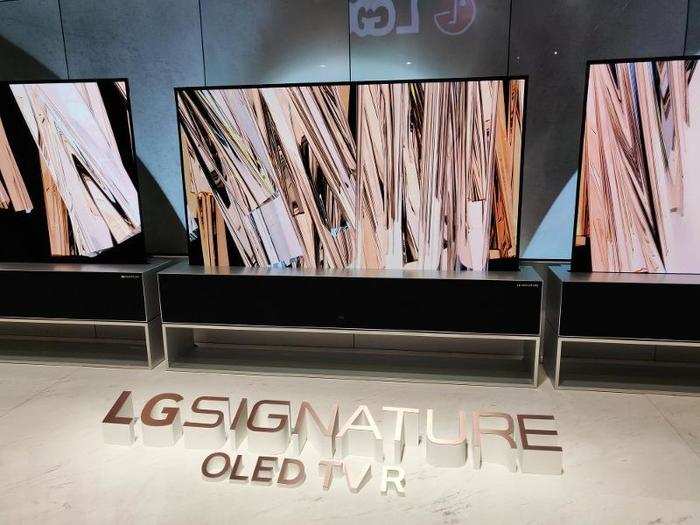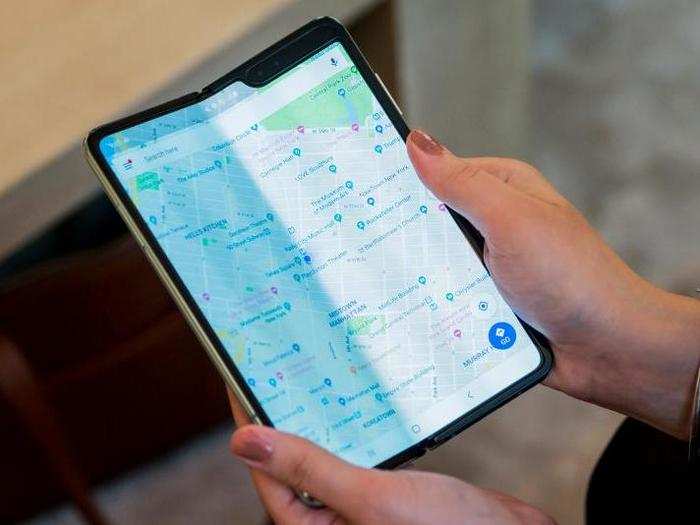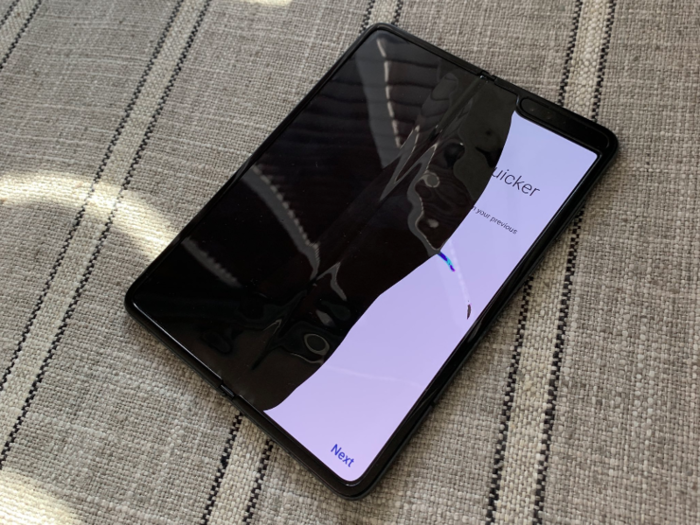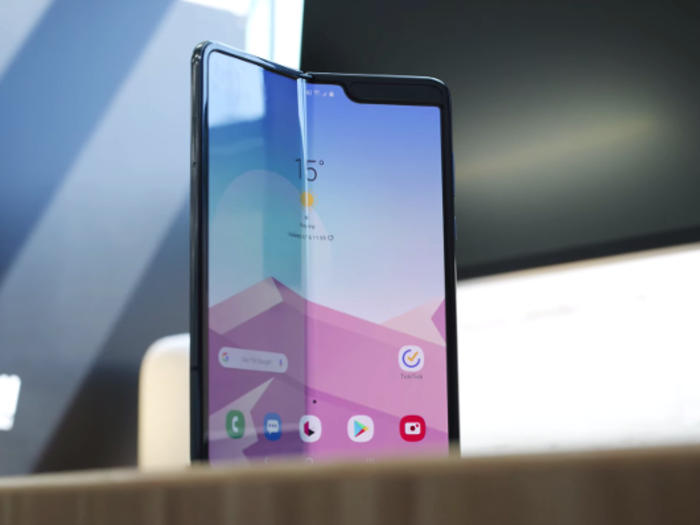- Home
- slideshows
- miscellaneous
- We're more than halfway through 2019, and 2 of the year's most revolutionary tech gadgets are still missing
We're more than halfway through 2019, and 2 of the year's most revolutionary tech gadgets are still missing
LG's absurdly thin Signature OLED TV R is the rollable TV you didn't know you wanted.

LG's Signature OLED TV R was scheduled to arrive in spring — but it's still nowhere to be seen, and LG isn't saying.

Nobody knows how much the rollable TV will cost, but we can look at some past pricing from LG to make an educated guess at the range. The LG Signature OLED TV W8 is currently available in both 65-inch and 77-inch models, and both are so-called "Wallpaper" televisions but don't roll up. That line of TVs starts at around $7,000.
The big difference here is that the LG Signature OLED TV R rolls up into a stylish little rectangle, and that difference is certain to cost a significant amount of money. How much of a difference it is remains to be seen, and LG isn't saying just yet.
That it's essentially a TV stand, TV, and soundbar all-in-one is sure to add a few more dollars to the bottom line.
When the TV was first shown at CES 2019 in January, it was scheduled to arrive at some point in spring. You may have noticed that spring has come and gone. Unfortunately, when we asked LG for an update this week, we never heard back.
And who could forget the nearly $2,000 Samsung Galaxy Fold.

Samsung's Galaxy Fold was officially debuted and detailed during the company's Unpacked event on February 20.
Instead of being shrouded in darkness, like when it was shown as a prototype, this time the device was shown under the bright studio lights. There was even a demonstration of the phone in action over a relatively lengthy period of time.
It was Samsung's first chance to prove to the world that, yes, the foldable phone is a real product that will be sold to consumers. To that end, Samsung succeeded — the demonstration proved that the Galaxy Fold was a functioning smartphone, albeit one with an absurdly small outer screen.
The device did what Samsung promised it would: It folded, and operated more or less as you would expect a modern smartphone to operate. Here's a look at the folding in action:
During the demonstration, the device appeared to function relatively smoothly, and the transition from standard smartphone to folded open was relatively seamless.
In a strange twist, Samsung didn't allow attendees of its Unpacked event to actually use the Galaxy Fold. Attendees had access to the other Samsung smartphones announced that day (the Galaxy S10 and S10e), but not the Galaxy Fold.
In hindsight, this looks like a red flag.
And who could forget the nearly $2,000 Samsung Galaxy Fold.

Samsung's Galaxy Fold was officially debuted and detailed during the company's Unpacked event on February 20.
Instead of being shrouded in darkness, like when it was shown as a prototype, this time the device was shown under the bright studio lights. There was even a demonstration of the phone in action over a relatively lengthy period of time.
It was Samsung's first chance to prove to the world that, yes, the foldable phone is a real product that will be sold to consumers. To that end, Samsung succeeded — the demonstration proved that the Galaxy Fold was a functioning smartphone, albeit one with an absurdly small outer screen.
The device did what Samsung promised it would: It folded, and operated more or less as you would expect a modern smartphone to operate. Here's a look at the folding in action:
During the demonstration, the device appeared to function relatively smoothly, and the transition from standard smartphone to folded open was relatively seamless.
In a strange twist, Samsung didn't allow attendees of its Unpacked event to actually use the Galaxy Fold. Attendees had access to the other Samsung smartphones announced that day (the Galaxy S10 and S10e), but not the Galaxy Fold.
In hindsight, this looks like a red flag.
When reviewers got their hands on the phone just ahead of its expected April launch, several devices broke after light use, so Samsung pulled the launch and has yet to release the Galaxy Fold.

Samsung provided review units of the Galaxy Fold to a variety of different publications and YouTube channels, from Business Insider to Marques "MKBHD" Brownlee to the Wall Street Journal. By our estimate, at least a dozen outlets were given review units to test.
Of those, at least four units outright failed.
The reasons varied: Some broke from normal use, and some broke because the reviewer removed a thin sheet of plastic — a screen protector — which was supposed to stay on the device (more on that in a moment).
To be clear: This is far from normal.
When a smartphone maker sends out review devices of its products, those units are intended to represent the consumer experience. If those units break, especially in such a large quantity, it represents a potentially major problem with the units that buyers will receive.
A few days later, Samsung officially delayed the Galaxy Fold. A new release date was expected in the following weeks, but it never came.

After days of being pilloried in the press, Samsung issued a statement officially delaying the Galaxy Fold's planned April 26 launch.
Here's Samsung's full statement:
"We recently unveiled a completely new mobile category: a smartphone using multiple new technologies and materials to create a display that is flexible enough to fold. We are encouraged by the excitement around the Galaxy Fold.
"While many reviewers shared with us the vast potential they see, some also showed us how the device needs further improvements that could ensure the best possible user experience.
"To fully evaluate this feedback and run further internal tests, we have decided to delay the release of the Galaxy Fold. We plan to announce the release date in the coming weeks.
"Initial findings from the inspection of reported issues on the display showed that they could be associated with impact on the top and bottom exposed areas of the hinge. There was also an instance where substances found inside the device affected the display performance.
"We will take measures to strengthen the display protection. We will also enhance the guidance on care and use of the display including the protective layer so that our customers get the most out of their Galaxy Fold.
"We value the trust our customers place in us and they are always our top priority. Samsung is committed to working closely with customers and partners to move the industry forward. We want to thank them for their patience and understanding."
The following month, Samsung began sending emails to customers who pre-ordered the device with a warning: Your pre-order will be canceled automatically if the Fold doesn't ship by the end of May. You can actively opt into the pre-order, but anyone who doesn't will have their pre-order canceled. May came and went without a new release date.
The latest update, from early July, comes via Bloomberg: The Galaxy Fold is apparently redesigned and ready for release ahead of the upcoming holiday season.
For now, that's where the situation stands. The Galaxy Fold currently has no new release date, though Samsung is expected to offer more details in the near future.
Popular Right Now
Popular Keywords
Advertisement